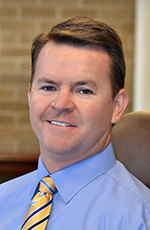Pastors, honor your calling to serve the Lord
“College students and seminary students who have just graduated can now exhale and begin to serve the Lord in their true calling.” Every May, I get this response from both professors and students.
 Richard Ray
Richard Ray
When I was in college, a professor told our class, “Once you start pastoring in a church made of bricks, it will be then you will know you have made it.” It is as if he were saying pastoring a small church is only for pastoral training or it is a place where you do you your time to be commended later for serving in a small church.
We have pastors leaving small churches only because they feel outside pressure to leave small churches for greener pastures of larger churches.
Reasons for moving
Research shows 12 percent of Southern Baptist pastors believe the move to another church or being called by God to another church is God’s will, while 11 percent move to another church for better pay and/or benefits. Relatively few pastors—4 percent—have left a church position because they wanted to pastor a smaller church.
Most ministers take a job with a different church for reasons such as wanting to move to a different community, wanting to lead a larger church and getting promoted to a higher position—not simply because they feel God calling them to a different church, according to a study conducted for LifeWay Christian Resources of the Southern Baptist Convention.
“Whoever can be trusted with very little can also be trusted with much” (Luke 16:10). That may not seem like a momentous thing to some, but it is a very important to God. For those serving on the small church mission field, small churches may in the world’s view seem like “very little,” but God sees things completely differently. He is seeing your trustworthiness in the task he has assigned to you and your faithfulness to that task, no matter what “size.”
Honor the call
Your calling to serve the Lord as a pastor is what you should be honoring, for that is pleasing unto the Lord. Do not do as most and move to another church for reasons other than it is God’s calling in your life.
Those who are teaching and mentoring young pastors, encourage them to follow the heart of God and not the heart of man.
Regardless of where God calls you to serve, know you are serving where God needs you so that others can be impacted greatly by the grace and mercy of God. We need more pastors serving where God wants them. Let us begin to create a culture of pastors who are not afraid to serve the Lord in locations regardless of size.
My professor was wrong. It is not the brick on the building that shows you made it. It is the ground you stand on.
We serve those serving in the small church mission field. To contact your Bivocational/Small Church Association go to www.tx.bivo.com or email at tririversdom@gmail.com.
Richard Ray is executive director of Texas Baptist Bivocational/Small Church Association and director of missions for Tri-Rivers Baptist Area.





